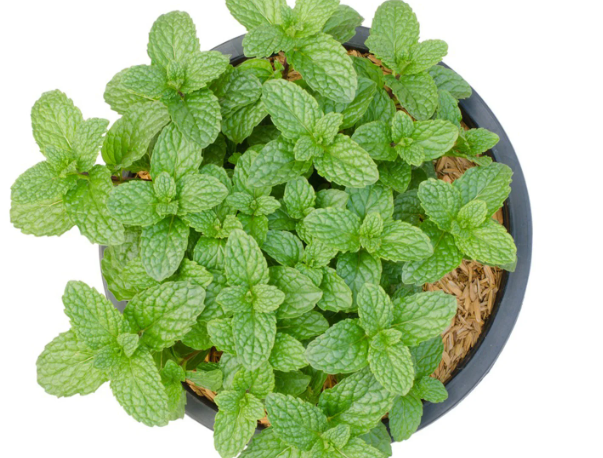Migraines are not merely headaches; they are often debilitating episodes of throbbing pain, accompanied by nausea, sensitivity to light and sound, and a relentless disruption of daily life. If you've ever experienced a migraine, you understand the desperate need for relief and the relentless pursuit of a solution that can bring respite from this tormenting condition.
In recent years, the quest for relief has led many to explore a holistic and gentle approach: natural remedies. People are increasingly seeking alternatives to traditional pharmaceutical treatments, hoping to find effective, sustainable solutions that don't come with the potential side effects of medication.
In this comprehensive guide, we'll delve into the world of "Effective Natural Remedies for Migraines," providing you with a wealth of knowledge and practical strategies to help you regain control over your life. From dietary adjustments and herbal remedies to the soothing touch of acupressure and the calming benefits of essential oils, we will explore a range of options designed to empower you in your journey towards headache pain relief.
Whether you're a chronic migraine sufferer looking for new approaches or someone who occasionally battles these intense headaches, this article is your gateway to understanding, managing, and ultimately reducing the impact of migraines on your life. Say goodbye to headache pain as we embark on this enlightening journey together.
II. Understanding Migraines
What Are Migraines and Why Do They Occur?
Migraines are complex neurological conditions that extend beyond just a throbbing headache. They often manifest with symptoms like intense head pain, nausea, vomiting, and sensitivity to light and sound. Understanding the causes of migraines is crucial. While triggers can vary from person to person, common factors include stress, hormonal changes, certain foods, and environmental factors.
III. Lifestyle and Dietary Changes
Identifying Dietary Triggers
One of the most proactive steps in managing migraines involves dietary changes. For example, some individuals find relief by avoiding trigger foods such as aged cheeses, caffeine, and processed meats. Keeping a food diary can help you identify your specific dietary triggers.
IV. Herbal Remedies
Feverfew and Butterbur: Nature's Migraine Allies
Nature offers a host of remedies for migraine relief. For instance, Feverfew, an herb, has shown promise in reducing the frequency and severity of migraines. Butterbur is another herbal option that has gained attention for its potential effectiveness. We'll explore how to use these herbs safely and effectively.
V. Essential Oils
Lavender and Peppermint: Aromatherapy for Migraine Relief
Lavender Mint plantAromatherapy with essential oils like lavender and peppermint can provide soothing relief during a migraine. These oils can be diffused, inhaled, or applied topically for a calming effect. We'll delve into the science behind their use and offer practical application tips.
Peppermint plant
VI. Acupressure and Relaxation Techniques
Pressure Points for Migraine Relief
Acupressure points can offer quick relief from migraine symptoms. Exploring specific pressure points like the LI-4 or Yintang can be highly beneficial. Additionally, we'll discuss relaxation techniques such as deep breathing and progressive muscle relaxation to alleviate stress, a common migraine trigger.
VII. Additional Tips and Considerations
Staying Hydrated and Managing Stress
Besides remedies, maintaining a healthy lifestyle is paramount in migraine management. We'll offer advice on staying adequately hydrated, managing stress through mindfulness practices, and maintaining regular sleep patterns.
FAQ Section
Frequently Asked Questions
1. Can natural remedies completely cure migraines?
- Natural remedies can help manage and reduce the frequency and severity of migraines, but they may not provide a complete cure for everyone. Results vary among individuals.
2. Are there any risks associated with herbal remedies for migraines?
- While herbs can be effective, they can also have side effects or interact with medications. Consult a healthcare professional before using them.
3. How long does it take for essential oils to relieve a migraine?
- Essential oil effectiveness varies. Some may experience relief quickly, while others may require more time and consistent use.
Conclusion
In conclusion, migraines need not control your life. By exploring the world of natural remedies, you can take proactive steps towards managing and alleviating the pain and discomfort associated with migraines. From dietary adjustments and herbal remedies to the soothing touch of acupressure and the calming benefits of essential oils, you have an array of tools at your disposal. Remember that individual experiences may differ, so it's essential to find the combination of remedies that works best for you. While natural remedies can be highly effective, always consult a healthcare professional for personalized guidance on your migraine management journey. Say goodbye to headache pain and embrace a life with fewer interruptions and greater well-being.
For more information:
10 Effective Natural Remedies For Migraines: Goodbye To Headache » SimplyBlogged (blogedsimply.com)
15 Natural and Home Remedies for Migraine Relief (healthline.com)
For More blog:











0 Comments